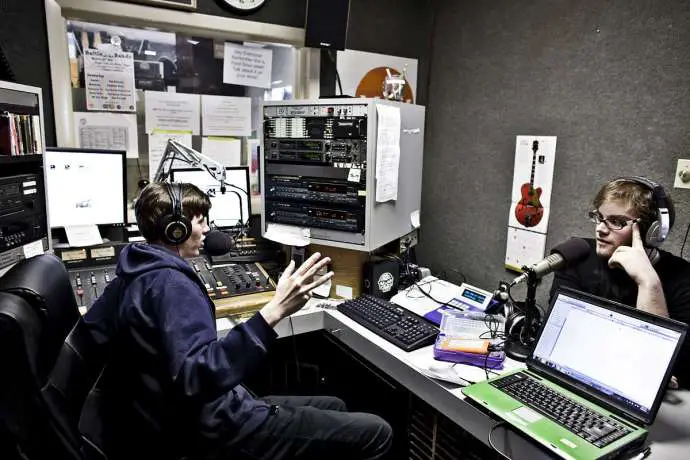In a unanimous decision released on Wednesday, the Constitutional Court holds that if laws and regulations are not clear, there is a risk that state bodies may take arbitrary decisions when weighing the rights of individuals.
Such regulatory vagueness is "constitutionally untenable and unacceptable," the court said in today's release after it took the decision on 24 October.
The decision affects provisions of the media act that required commercial radio stations to dedicate 20% of their musical airtime to Slovenian music, and related provisions that determined in detail what constitutes Slovenian music.
The judges held that the rules made it impossible to determine exactly what constitutes Slovenian music or what airtime actually means.
The music quotas were originally put in place in 2015 in an effort to increase the share of Slovenian music played on radio.
At the insistence of lobby groups representing musicians, the provisions were subsequently amended twice in 2016 to prioritise newer music.
Radio stations have been opposed to the music quotas from the start, arguing that they have practically lost editorial independence due to the rigid rules.
The Constitutional Court challenge was brought by the upper chamber of parliament and several private radio stations.
The ruling does not affect the 40% Slovenian music quota for public radio stations.
Media expert Marko Milosavljević told the STA that the top court's ruling validated the warnings voiced by pundits before the quotas had been introduced.
"We were warning that any definitions here need to be very precise ... that talk about protecting Slovenian music and musicians sounded nice on paper, but that problems arose as soon as one needed to define what constitutes Slovenian music," he said.
While basing the definition on nationality would "eliminate a significant number of Slovenian musicians who may perhaps not be purely Slovenian", basing it on language would disqualify instrumental music, Milosavljević argued, while also pointing to privacy issues.
Radio mogul Leo Oblak on the other hand sees the ruling as confirming the distinction between public and private media, with the latter having to survive in line with market principles without any aid from the state.
"The quotas meant fewer listeners above all for radio stations playing modern music, since there is less Slovenian production in this field, unlike for instance in pop folk," Oblak said.
He argued one could not expect a commercial station to operate in a non-commercial fashion, adding that it was on the other hand fair that "the sate supports culture, since culture is not commercial and cannot survive on the market".







